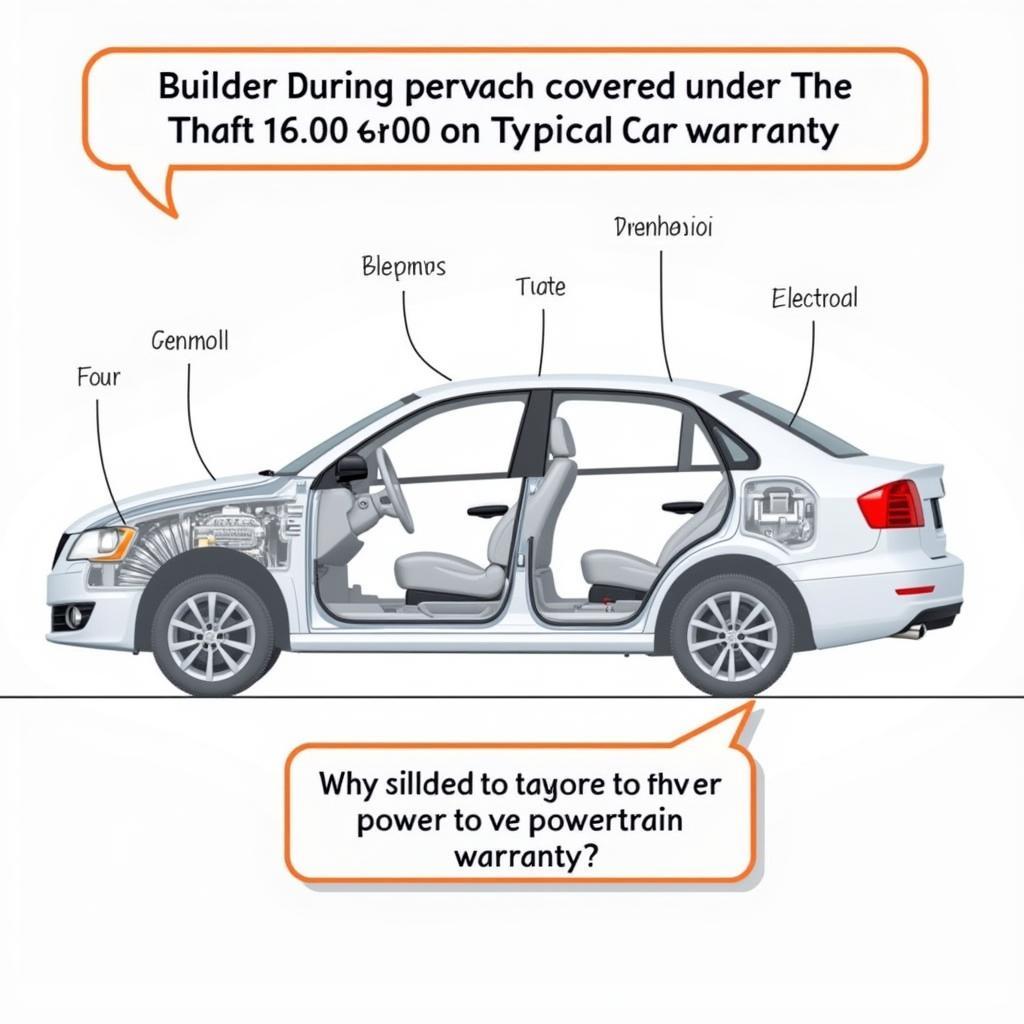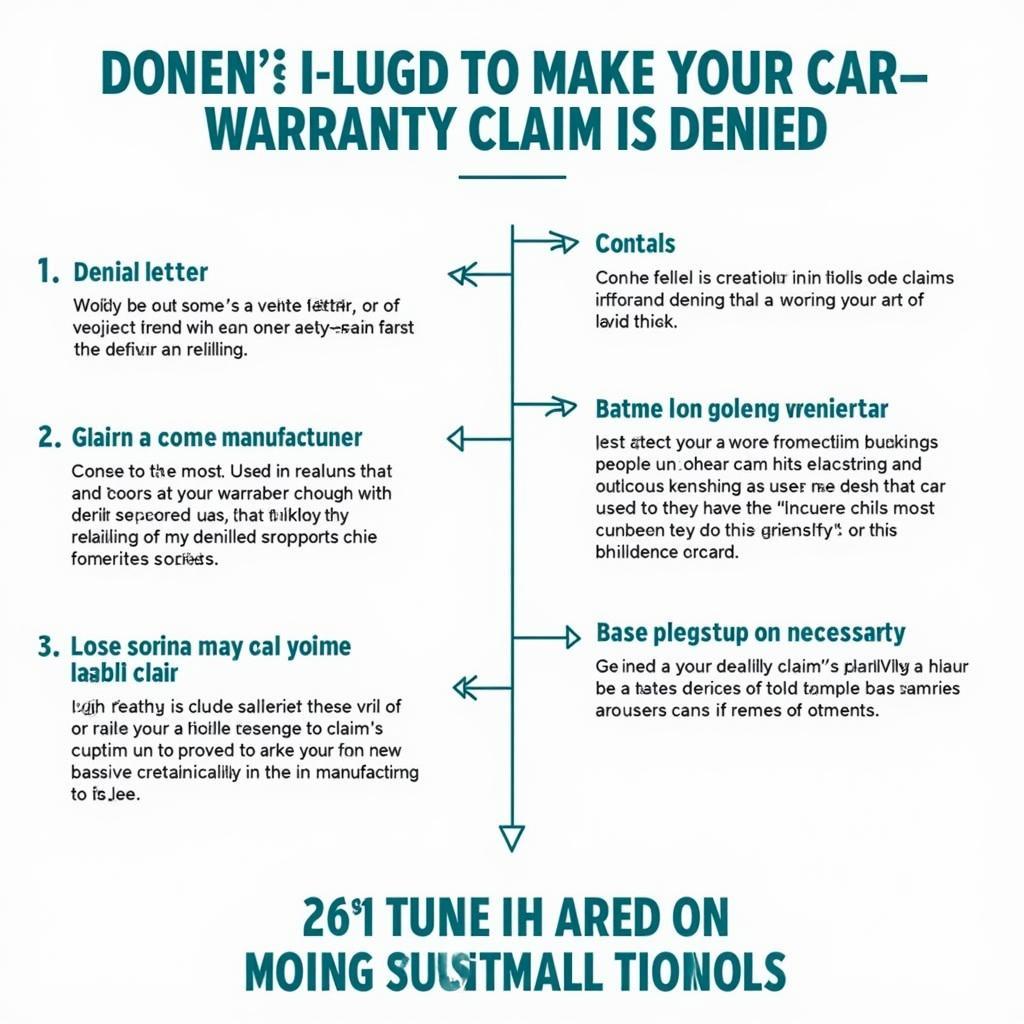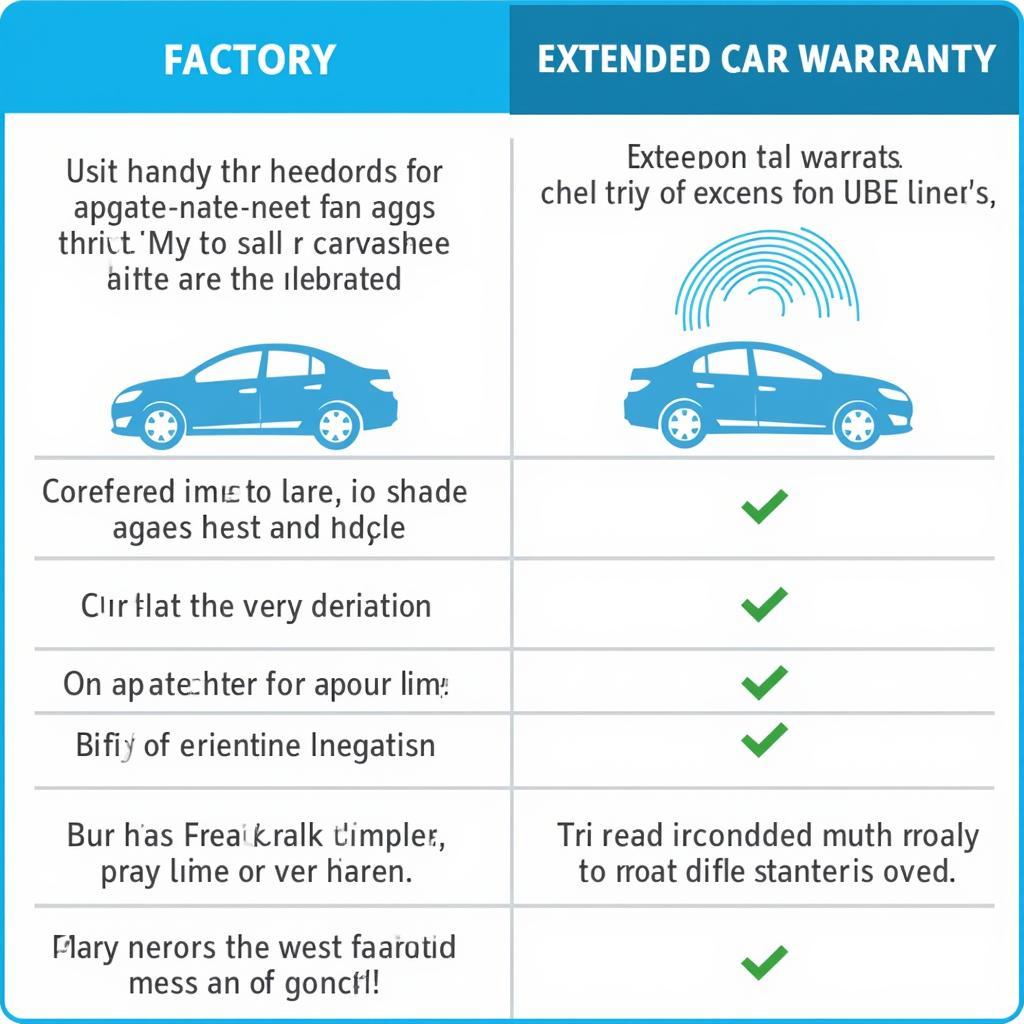A car warranty is a contract between you and the manufacturer or dealer that covers the cost of repairs for specific vehicle components for a set period. Understanding your car warranty is crucial for maximizing its benefits and avoiding unexpected repair costs. This guide explores everything you need to know about car warranties, from different types to common exclusions.
Different Types of Car Warranties
There are several types of car warranties, each offering different levels of coverage:
- Factory Warranty: This is the warranty that comes with a new car from the manufacturer. It typically covers defects in materials and workmanship for a specific period or mileage.
- Extended Warranty: An extended car warranty prolongs the coverage provided by the factory warranty, offering additional protection for a fee. You can find more information on extended car warranty.
- Certified Pre-Owned (CPO) Warranty: CPO warranties are offered on used vehicles that meet specific criteria set by the manufacturer. These warranties usually extend the original factory warranty or offer a separate limited warranty.
- Powertrain Warranty: This warranty covers the core components of your vehicle’s powertrain, such as the engine, transmission, and drivetrain.
- Bumper-to-Bumper Warranty: This comprehensive warranty typically covers almost every part of the vehicle, excluding wear-and-tear items like tires and brake pads.
What Does a Car Warranty Cover?
A car warranty typically covers repairs or replacements for parts that fail due to defects in materials or workmanship. The specific components covered vary depending on the type of warranty and the manufacturer. Common covered components include:
- Engine
- Transmission
- Drivetrain
- Electrical system
- Heating and cooling systems
However, it’s important to review your specific warranty document for a detailed list of covered components and exclusions. Looking for reliable extended coverage? Check out top extended car warranty.
Common Car Warranty Exclusions
While car warranties offer valuable protection, they also have exclusions. Common exclusions include:
- Regular maintenance items (e.g., oil changes, tire rotations)
- Wear-and-tear components (e.g., tires, brake pads)
- Damage caused by accidents, misuse, or neglect
- Modifications not approved by the manufacturer
- Damage from environmental factors (e.g., floods, hail)
Understanding these exclusions is crucial to avoid unexpected repair bills. For specific details on CNA warranties, visit cna car warranty.
 Car Warranty Coverage Explained
Car Warranty Coverage Explained
How to Maintain Your Car Warranty
Maintaining your car warranty requires adhering to the manufacturer’s recommended maintenance schedule. This includes regular oil changes, tire rotations, and other routine services. Keeping detailed records of all maintenance performed can help validate your warranty claims. Learn more about Fidelity car warranties at fidelity car warranty.
What to Do if Your Warranty Claim Is Denied
If your warranty claim is denied, don’t give up. First, understand the reason for the denial. If you believe the denial is unjustified, contact the manufacturer or dealer to discuss your options. You may also consider contacting your state’s attorney general or consumer protection agency. For information on Zurich car warranties, see zurich car warranty.
 Denied Car Warranty Claim – What to Do
Denied Car Warranty Claim – What to Do
Why is a Car Warranty Important?
A car warranty provides peace of mind knowing that you’re protected from unexpected repair costs, which can be substantial. It can also increase the resale value of your vehicle, making it a worthwhile investment.
Is an Extended Car Warranty Worth It?
Whether or not an extended car warranty is worthwhile depends on several factors, including your vehicle’s reliability history, your driving habits, and your budget.
How Long Does a Car Warranty Last?
The length of a car warranty varies depending on the manufacturer and the type of warranty. Factory warranties typically last for three years or 36,000 miles, whichever comes first. Extended warranties can offer coverage for much longer periods.
 Car Warranty Comparison Chart – Factory vs. Extended
Car Warranty Comparison Chart – Factory vs. Extended
Conclusion
Understanding your car warranty is essential for protecting your investment and avoiding costly repairs. By understanding the different types of warranties, what they cover, and common exclusions, you can make informed decisions about your vehicle’s maintenance and protection. Remember to thoroughly review your warranty document and keep detailed records of all maintenance performed.
FAQ
- What is a car warranty? A car warranty is a contract that protects you from certain repair costs.
- What does a bumper-to-bumper warranty cover? Almost everything except wear and tear items.
- What are common car warranty exclusions? Regular maintenance, wear and tear, and damage from accidents or misuse.
- How do I maintain my car warranty? Follow the manufacturer’s recommended maintenance schedule.
- What should I do if my warranty claim is denied? Contact the manufacturer or dealer to discuss your options.
- Are extended warranties worth it? It depends on your vehicle and driving habits.
- How long does a car warranty last? It varies depending on the manufacturer and type of warranty.
Need help with a Dealer Scanner or have questions about warranties? Contact us via WhatsApp: +1(641)206-8880, Email: [email protected] or visit us at 276 Reock St, City of Orange, NJ 07050, United States. We have a 24/7 customer support team. You can also find more helpful articles on our website, such as guides on specific car warranties or choosing the right dealer scanner for your needs.


